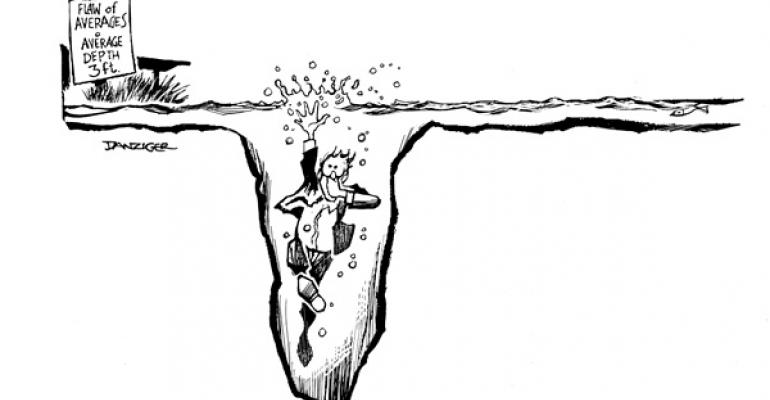 Before you return the phone call of that asset management wholesaler or asset allocation outsourcer, you might want to heed some advice from Tom Idzorek, chief investment officer and director of research in Morningstar’s investment management division: Be careful not to buy into new asset allocation approaches. Idzorek spoke at the IMCA 2012 New York Consultants Conference held in Times Square this week.
Before you return the phone call of that asset management wholesaler or asset allocation outsourcer, you might want to heed some advice from Tom Idzorek, chief investment officer and director of research in Morningstar’s investment management division: Be careful not to buy into new asset allocation approaches. Idzorek spoke at the IMCA 2012 New York Consultants Conference held in Times Square this week.
In particular, Idzorek cautioned against strategies that allocate based on risk factors as well as risk parity approaches. Risk parity approaches ignore returns and focus on diversification of risk. But there’s no evidence or justification that this should lead to a better portfolio, he says.
“Active management is a zero sum game prior to fees,” Idzorek says.
This backs up what I reported in our December issue: Yes, financial advisors are seeking alternative allocation strategies, but active is extremely difficult and few succeed. Consider this quote from Richard Ferri, founder of Portfolio Solutions and author of The Power of Passive Investing:
Monkeys throwing darts at a dartboard or at an ETF board are going to have an asset allocation. Some of them are going to come out ahead, some of them are going to come out behind. Does that make the ones that come out ahead smart and the ones that came out behind dumb? No. They're just monkeys; they're all dumb. But some of them by randomness are going to come out ahead.
That said, Idzorek believes we need to rethink asset allocation in a non-normal world. The vast majority of tools we use assume returns follow this bell-shaped curve, Idzorek said. But as we all know, “the unprecedented happens all the time,” says our Editor-in-Chief David Geracioti. (See cartoon above.) In other words, the events of ’08 showed us, the hard way, that returns aren’t normally distributed. The bell-shaped curve fails to predict how often bad events happen by a factor of 10, Idzorek added.
How to fix that? By moving to models that capture non-normal qualities of return models and rethinking the definition of risk.

